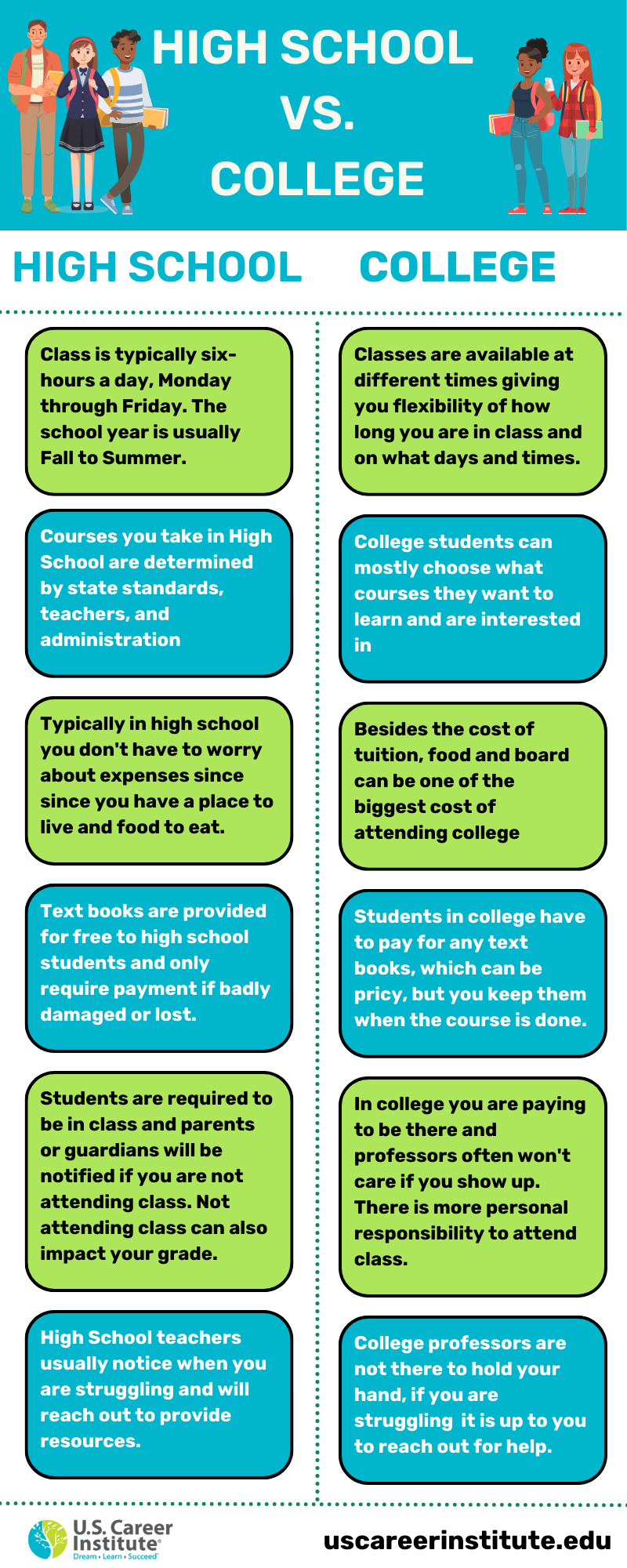What's the Difference Between College and High School?
By: Jordin Frey
Seeking higher education is a great way to further your skills, but the transition from high school to college can be hard if you don't know what to expect. While there are similarities between the two types of schooling, the high school vs. college differences are obvious from the get-go.
If you're wondering, "How is college different from high school?" while daydreaming about how things will change once you graduate with your high school diploma, you may be in for a few surprises. The next step can be drastically different from what you experienced in high school, and it may take some time to adapt to your new learning environment. However, when you know what to expect, you'll be better prepared for the difference between high school and college and better able to adapt to it.

High School VS. College Schedule
In high school, you have a traditional six-hour school day on Monday through Friday. The school year is one continuous year from fall to summer.
In college, classes are available at different times and on different days, so you can take classes at night, build in long breaks throughout the day, or even give yourself half-days or whole days off. The school year usually has two semesters, and you'll take different courses each semester.
High School VS. College Course Requirements
In high school, the courses you take are largely dictated by state standards, school teachers, and administrators.
College students can choose what they want to learn, mainly focusing on subjects that interest them.
High School VS. College Support
High School teachers will usually notice if you’re struggling and offer help and resources.
College professors are not there to coddle you; they’ll help you if you need it, but it’s on you to reach out to them if you’re falling behind or struggling.
High School VS. College Expenses
One large difference between high school and college is expenses. In high school you like don’t have to worry about food and board expenses. Since you likely have a place to eat and live.
In college, if you live on campus or want to leave near campus you will have to pay rent and food costs.
High School VS. College Textbooks
In high school, your school provides your textbooks for free, and you only have to pay for them if they are badly damaged or missing at the end of the year.
In college, the cost of your textbooks comes out of your own wallet, and many times, they cost a small fortune. On the upside, since you paid for them, they're yours to keep.
High School VS. College Accountability
The largest difference between school and college education is that high school students are required to be there. If you don't show up to class, your teachers will notice, and it could affect your grade.
In college, you choose the college and the program and pay to be there. Your professors won't bat an eye if you skip class, but then again, why would you skip classes that you're paying good money for?
Of all of the differences between high school and college, it's obvious that the true difference between high school and college education is that higher education requires you to have the motivation required to advocate for yourself in order to succeed. College isn't only a place where you have some freedom from your parents and a chance to branch out and meet new people, it's also a rigorous academic environment, and if you want to succeed, you have to treat it as such instead of just as an extended high school.
Sources:
https://www.apa.org/ed/precollege/ptn/2014/08/college-freshmen
https://www.iup.edu/devstudies/services/differences-between-high-school-and-college/

